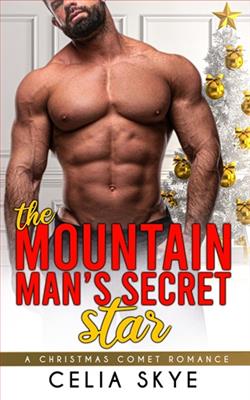Page 4 of The CEO
“Can I help you with anything, miss?” The funeral director hovers in the doorway, his practiced sympathy only making this harder.
“No,” I whisper, fingers still moving across the keyboard. “I need to do this myself.”
I type furiously, refusing to let my parents become another generic death notice. I write about Dad’s award-winning photography, Mom’s fearless journalism. How they met covering a protest in ‘92, both chasing the same story. Their shared passion for exposing corruption. The way Dad could make Mom laugh even on her darkest days. I write about justice: the justice they sought in life, the justice denied them in death by a random drunk driver who stole a car and stole their futures.
When I finish, it’s three times the allowed length, but I don’t care. I’ll pay the extra myself. My parents deserve to be remembered fully, completely. Their story deserves to be told correctly.
But that’s not what this job is. So I push the curious thoughts about what kind of woman Martha was and type out the rest of her obituary, finishing with five minutes to spare before my deadline.
Pushing back from my desk, I reach down and grab my camera bag that sits at my feet—a constant reminder of those abandoned dreams down the path not taken. It’s been over eight years now since my parents died, and my father’s old Nikon became my most treasured possession. It also serves as a reminder that I still haven’t found the courage to pursue my photography dreams.
“I’m heading out to lunch.” I flash a quick smile to my coworkers, with only Ingrid, my cube mate, glancing up to offer a wave.
“Enjoy lunch.”
Outside, the spring air is so crisp and fresh it makes being stuck inside feel criminal. I check my watch as I slip behind the wheel of my car—I have just over fifty minutes before I need to be back at my desk.
A short drive later, I’m at my favorite forest preserve just outside the city. It’s my secret sanctuary when writing about death becomes too suffocating. Out here, there’s nothing but new life flourishing. A stark contrast to my daily work.
I loop the camera around my neck, the familiar weight settling against my chest as I walk down one of the paths. It’s the path that leads to the small pond at the back of the preserve. I take my time along the way, pausing every so often to capture the beauty that surrounds me.
But the further I walk into the preserve, something slowly starts to shift in the air. The singing bird that greeted me falls silent, as if the forest is holding its breath. A gust of wind whips my scarf around my face, making me shiver. It’s colder than it should be for spring. Goosebumps rise along my arms despite my jacket. Even the shadows between the trees seem deeper somehow, the light struggling to penetrate the canopy above.
Someone’s watching me.
The thought appears unbidden and completely out of character for me, raising the fine hairs on the back of my neck. I spin around, scanning the empty path behind me, but I don’t see anything unusual. No creepy strangers lurking, or even a questionable shadow. Just trees swaying in the increasingly restless wind. A distant rumble of thunder startles me. The sky starts to grow dark off in the distance, a clear warning of an approaching storm, even though the sky was clear just moments ago.
I shake off the sensation, chalking it up to too many late nights reading up on old cases while watchingDateline, and continue toward the pond.
I adjust the viewfinder, focusing on a small spider that busies herself with spinning her web. Her practiced precision is impressive, even if she’s terrifying by most standards. I walk down a little further, the edge of the pond coming into view along with a beautiful blue heron that wades through shallow water. I zoom in, snapping several shots of the detailed markings around his eyes. The water ripples away from his skinny legs in perfect formation and I crouch down, capturing what feels like a cover shot forNational Geographic.
Every time I snap a photo, it feeds something inside me that feels starved for attention—some untapped, untouched part that no practical job could ever satiate. That familiar guilt of abandoning my dreams starts to creep in, but I push it aside, reminding myself that time spent out here is a gift and I don’t want to waste it on regret.
As I move deeper through the preserve, I reach the point in the path where I usually turn around. But today, something pulls at me to keep going. I contemplate it for a moment, checking my watch to make sure I have enough time to follow the path that dead ends around the far side of the pond.
“Why not?” I shrug when I realize I haven’t even been out here that long. I don’t get very far down the path when I hear muffled voices. Figuring it’s probably a couple of birdwatchers, I lighten my steps so I don’t scare away any wildlife. But the closer I get, the more intense the voices become. They’re both male and they sound angry.
I freeze, my instincts suddenly telling me to get the hell out of here—but I don’t. I continue toward them, tiptoeing now as my curiosity pulls me forward.
When I reach a large clump of overgrown bushes next to a tree, I spot them. I was right: It is two men, standing in a small clearing. Even from this distance, though, the power dynamic between them is clear.
“You had very simple and clear instructions, Roberts,” the taller man says, his voice low and controlled as it carries over the breeze. He stands at least a foot taller than the other guy, his shoulders broad but relaxed, despite the disgust in his tone. His back is toward me, but even from this angle, it’s clear this man is powerful. “Nothing should have been confusing for you.”
“Mr. Knox, please, I can explain—” Roberts’ voice cracks, his mustache quivering as sweat beads along his hairline.
I have no idea what kind of moment I’m capturing when I lift my camera, but something inside tells me this is something I’m going to want to remember. I peer through the viewfinder, focusing the frame on the shorter man whose mustache dances across his upper lip as he pleads with Mr. Knox.
Mr. Knox.
The name sounds familiar, but with his back toward me, I still have no idea who this man is. I continue snapping several more photos, and just as I’m about to lower my camera, Mr. Knox turns his head. I gasp, his profile coming into perfect view. I hit the button and hold it down, my camera taking photos at a rapid pace as I realize who I’m looking at.
Damien Knox—Chicago’s most famous and somewhat reclusive billionaire. A man known for pulling himself up from obscurity to take over one of the most powerful businesses in North America. As CEO, he has turned a thriving company into an empire, his philanthropic endeavors putting any other rich assholes to shame. While his face often graces the cover of popular media outlets, his personal life is left untouched.
But something about the man I’m seeing before me—his posture and the predatory stillness in his voice—doesn’t match the public image he lets the world see. I focus again on his face, his features cold, his jaw sharp and firm, his eyes dark, like they absorb light instead of reflecting it.
“Is that . . . an excuse?”
“N-n-no, no.” The man stumbles over his words as Damien’s lips curve into the smallest semblance of a smile that contains no warmth whatsoever.















